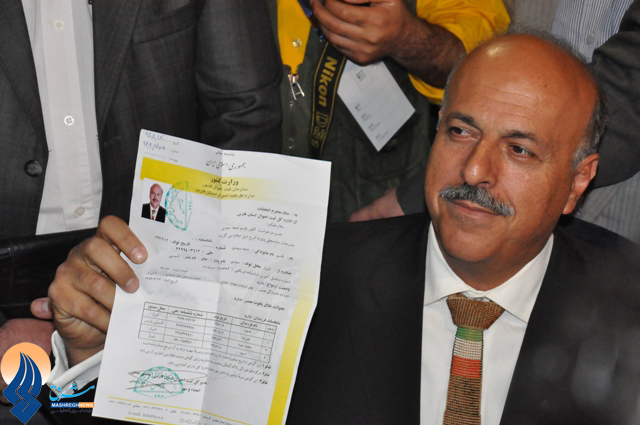Presidential Candidate Threatened Not to Give Interviews to Persian Media Abroad

Sholeh Sadi told the Campaign that the Intelligence Ministry forces threatened him. “‘We give you a notice now, but if you repeat it, we will use another approach,’ meaning that in fact they threatened me and that they don’t want me to give interviews anymore. But their treatment was very polite and they weren’t rude,” he said.
Ghassem Sholeh Sadi, a presidential election candidate told the International Campaign for Human Rights in Iran that on the afternoon of Tuesday, May 14, Intelligence Ministry forces threatened him not to talk to media such as the BBC Persian Service and Voice of America about the upcoming elections and his candidacy.
“This morning, in a phone call, Intelligence Ministry forces asked me to go to their offices. I went there in the afternoon. They talked to me for an hour and a half and asked me some questions. It was mostly about the interviews I have had with the BBC and Voice of America over the past two or three weeks. They were sensitized about why I talked to these media and why I had spoken about things such as a referendum. I told them that I had spoken within the framework of the law, and that I had not committed any violations,” the presidential candidate ad former political prisoner told the Campaign.
Sholeh Sadi told the Campaign that the Intelligence Ministry forces threatened him. “‘We give you a notice now, but if you repeat it, we will use another approach,’ meaning that in fact they threatened me and that they don’t want me to give interviews anymore. But their treatment was very polite and they weren’t rude,” he said.
Ghasem Sholeh Sadi is an independent candidate for the upcoming presidential election. He is also a lawyer, a former member of the Parliament, and a university professor. He was arrested on April 3, 2011 and was sentenced to 1.5 years in prison and a ten years’ ban on teaching at universities on charges of “insulting the Supreme Leader” and “propaganda against the regime,” for writing a critical letter to Ali Khamenehi, Iran’s Supreme Leader. He was released in August 2012 after completing his prison term.
Asked whether he will contemplate having more interviews with media outside Iran, he told the Campaign, “I have only been out for a few hours and I still don’t know. I will have to think and decide. Anyhow, they did threaten me that if it [the interviews] continues, they would not tolerate it.”
In the remaining month before the elections, Sholeh Sadi asked the Iranian judicial authorities, “not to commit violations themselves, to observe the law, and to act within the responsibilities the law has defined for them, and not to violate the Judiciary’s independence.”






